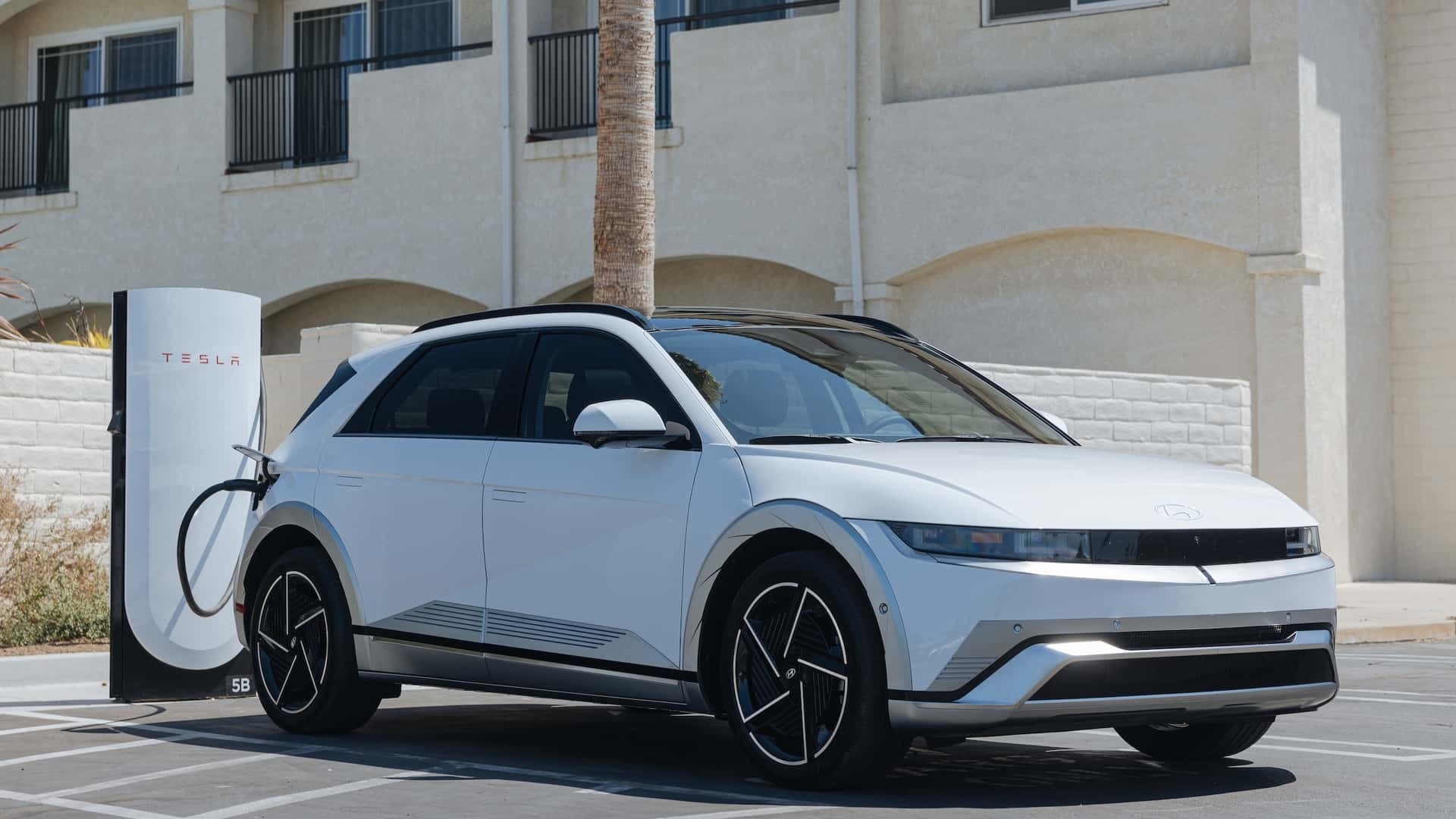Hyundai Is Becoming the New Tesla

Even in a Trump presidency, America’s EV future may not run through Elon Musk.
Hyundai has a lot riding on a patch of rural Georgia. In October, the South Korean auto giant opened a new electric-vehicle factory west of Savannah at the eye-watering cost of $7.6 billion. It’s the largest economic-development project in the state’s history (one that prompted the Georgia statehouse to pass a resolution recognizing “Hyundai Day”). For now, workers at the so-called Metaplant are building the company’s popular electric SUV, the Hyundai Ioniq 5, and soon more EVs will be built there, too. And to power those vehicles, Hyundai is set to open a battery plant at the site, and is spending billions to open another one elsewhere in Georgia.
Hyundai’s plan will allow the Ioniq 5—and other future electric cars already in the works—to qualify for tax credits implemented by the Inflation Reduction Act. American-made EVs are eligible for rebates that can knock thousands of dollars off their price, making them far more appealing to consumers. But Hyundai’s nearly $13 billion investment may soon hit a snag. In his second term, President-elect Donald Trump has said he will make those tax credits history. If he follows through on that promise, EV sales will surely slow, and Americans will buy more gas guzzlers that will produce emissions for the decade-plus they’ll be on the road. The problem is worse than it might look: The auto industry is investing more than $300 billion to meet the Biden administration’s EV goals. Most automakers are hemorrhaging money on EVs, and revoking these incentives may give them an excuse to roll back their plans to introduce electric cars, which would give consumers more clean-driving options.

